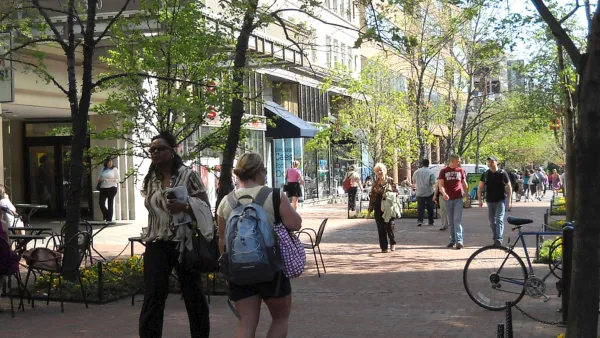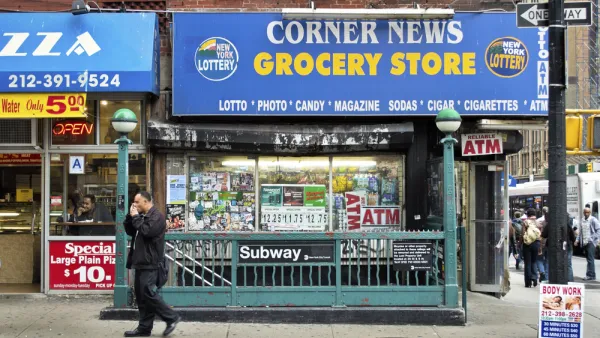Government support has helped open stores in underserved communities, but cost and scale make it difficult for small businesses to survive long-term.

In 2018, Illinois launched a $13.5 million initiative aimed at bringing grocery store options to areas known as ‘food deserts’ — “defined by the U.S. Department of Agriculture as any low-income urban neighborhoods without a grocery store within a mile, and any rural communities without one within 10 miles” — where residents have a hard time accessing healthy and affordable foods.
But of the six stores that opened that year, four have closed, highlighting the problem of longevity for such projects that receive initial fanfare but little ongoing support.
As Molly Parker explains, “Capitol News Illinois and ProPublica examined 24 stores across 18 states, each of them either newly established, preparing to open or less than five years old when they received funding through the federal USDA Healthy Food Financing Initiative in 2020 and 2021. As of June, five of these stores had already ceased operations; another six have yet to open, citing a variety of challenges including difficulties finding a suitable location and limited access to capital.”
Ultimately, the investigation found, “For all the benefits the opening of a store can bring to a community, if it can’t compete on pricing, it will struggle to survive.” Although food deserts are defined by distance, other factors — the ability to buy in bulk, broader options — can still prompt people to travel farther for better deals. Meanwhile, some suppliers won’t work with small, independent stores.
To support the growth and longevity of local stores, Illinois launched a new program that will focus on supporting startups and small, independent stores. “And for the first time, government-owned stores in Illinois are eligible to apply for state aid. Chicago is the first major city in the nation to consider this option, though underwriting losses with taxpayer funds is controversial.”
FULL STORY: The Government Spends Millions to Open Grocery Stores in Food Deserts. The Real Test Is Their Survival.

Analysis: Cybertruck Fatality Rate Far Exceeds That of Ford Pinto
The Tesla Cybertruck was recalled seven times last year.

National Parks Layoffs Will Cause Communities to Lose Billions
Thousands of essential park workers were laid off this week, just before the busy spring break season.

Retro-silient?: America’s First “Eco-burb,” The Woodlands Turns 50
A master-planned community north of Houston offers lessons on green infrastructure and resilient design, but falls short of its founder’s lofty affordability and walkability goals.

Test News Post 1
This is a summary

Analysis: Cybertruck Fatality Rate Far Exceeds That of Ford Pinto
The Tesla Cybertruck was recalled seven times last year.

Test News Headline 46
Test for the image on the front page.
Urban Design for Planners 1: Software Tools
This six-course series explores essential urban design concepts using open source software and equips planners with the tools they need to participate fully in the urban design process.
Planning for Universal Design
Learn the tools for implementing Universal Design in planning regulations.
EMC Planning Group, Inc.
Planetizen
Planetizen
Mpact (formerly Rail~Volution)
Great Falls Development Authority, Inc.
HUDs Office of Policy Development and Research
NYU Wagner Graduate School of Public Service




























